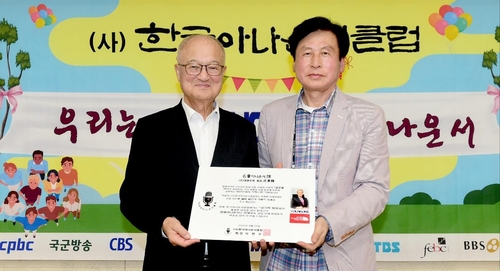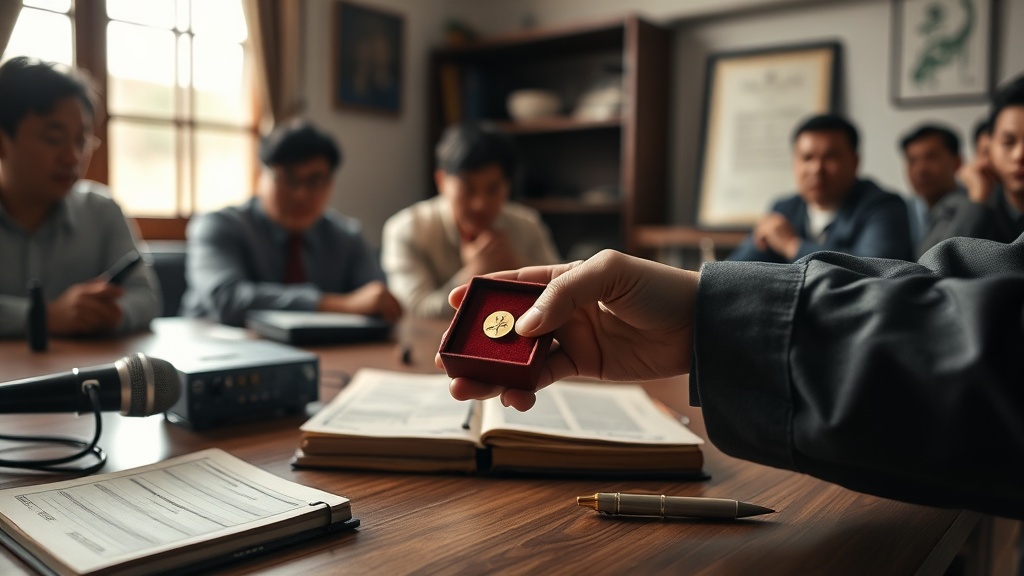For the first time, the club has awarded an honorary title to someone who is not a professional announcer.
The move aims to build bridges between the broadcasting world and business and civic leaders.
However, questions about internal identity and the program's real impact are already being raised.
“Honorary Announcers: Debate or Honor?”
Overview
This is ultimately a question of identity.
The Korean Announcers Club is a nonprofit made up of current and former broadcast announcers (professionals who host news and programs on radio and TV).
Since its founding, the club has focused on camaraderie and professional development.
Recently, it created a system to grant the title “Honorary Announcer” to business leaders and public figures.
The program is meant to embrace people who have helped advance broadcasting culture.
Meanwhile, questions remain about how to balance professional announcer credentials with symbolic honors.

History and Nature of the Program
This is a balance between tradition and change.
For about four decades the Korean Announcers Club has promoted fellowship and professional standards among broadcasters.
Members keep networks alive through regular meetings, training sessions, and cultural outings, and they have worked to raise the practical standards of broadcast work.
At the same time, the club has stressed broadcasting’s public value.
The honorary announcer title is a way to confer the club’s honor on outsiders.
However, selection criteria, formal powers, and the scope of activities still require detailed operating rules.
In this process, transparency and fairness are essential conditions for the program’s acceptance (meaning the rules must be open and impartial).
Arguments in Favor
It is a chance to expand reach.
The honorary announcer program can open new channels for the broadcast community to communicate with other sectors of society.
First, the program signals public recognition.
Awarding the title to business leaders or civic figures signals that broadcasting welcomes their support and cooperation.
This can strengthen production capacity, increase sponsorship or partnerships, and ultimately help provide audiences with more diverse content.
Second, there is a network effect.
Honorary titleholders can be invited to club events to give talks or mentoring, and those connections often link directly to hands-on training.
For example, if an executive advises on a public campaign or a documentary, the project gains realism and broader impact.
Third, comparable examples exist abroad.
Some media organizations name honorary members to deepen collaboration with outside experts.
Those cases often show that widening the boundary of expertise can broaden the range of content. Therefore, the Korean Announcers Club’s step aligns with international practice and could contribute to broadcasting culture if managed systematically.
Finally, the program has symbolic value.
Publicly recognizing contributions raises the profile of both the recipients and the club.
Such symbols can attract public attention and prompt a renewed appreciation for the role announcers play in society.
Arguments Against
There is a worry about diluting identity.
Critics say that giving honorary titles to outsiders may erode the professional identity of announcers.
The core objection centers on qualifications and identity.
Announcers rely on trained skills—voice technique, program hosting, reporting, and commentary—that come from professional training and experience.
If the club gives honors to people without broadcasting experience, outsiders may reduce the title to a simplistic label.
Second, symbolic programs can fail to produce practical results.
If the honorary title becomes a one-off publicity move, the club’s primary work—member training and strengthening professional skills—could be sidelined.
For a nonprofit with limited budget and staff, spending resources on external ceremonies might shrink internal programs.
Third, internal pushback is possible.
Current and former announcers have built the club’s standing through their careers.
Granting equivalent titles to outsiders may feel unfair to some members and could weaken internal cohesion.
Cases elsewhere also illustrate the risk.
Some organizations that adopted similar honorary schemes enjoyed initial publicity but later cut or ended the programs after failing to restore internal trust.
Those precedents suggest that the club should act cautiously when implementing this program.
Therefore, critics argue that the program needs more than a symbolic rationale: clear selection rules, transparent administration, and member consent are prerequisites.
Concerns and Possible Responses
Transparency and clear standards matter most.
To ease concerns, operating rules and participation procedures must be published and formalized.
Specifically, proposals include diversifying the selection committee, opening nomination or application processes to the public, and requiring post-award activity plans.
Also, the club should define the rights and responsibilities of honorary announcers so the title creates mutual benefit beyond mere symbolism.
For instance, requiring participation in training programs, offering mentoring, or co-designing public-interest projects would increase the program’s social value.
Meanwhile, a phased rollout could help secure internal buy-in.
Piloting the program, evaluating results, and then deciding on full implementation would reduce unnecessary conflict.
At the same time, regular feedback channels should be run so members’ voices shape future changes.

Online Reaction and Public Debate
Responses are mixed.
Viewers and online communities are actively discussing whether the honorary program is meaningful and necessary.
On social media, supporters emphasize outreach and the value of public recognition.
At the same time, some viewers and industry insiders worry about weakening professional standards.
These varied opinions could become an asset or a warning sign depending on how the club designs and communicates the program.
The club should not simply accept or ignore this public sentiment.
Instead, it should host open forums, run online surveys, and hold member workshops to develop concrete improvements.
Securing transparency in that process would strengthen the program’s legitimacy and make external partnerships more durable.
Conclusion
The honorary announcer program carries both potential and risk.
It promises wider reach and social recognition, but it also brings the risk of confusing professional identity and triggering internal conflict.
Therefore, the program cannot be adopted lightly: transparent rules, a phased rollout, and member agreement are essential prerequisites.
At the same time, giving honorary titleholders real roles—so the honor is not just symbolic—will be important.
Key takeaway: Careful design and transparent governance are required.
Ultimately, success will depend on balancing outward expansion with internal solidarity.
We’ll leave you with a question: Do you think an honorary announcer program would help broadcasting develop—or would it do more harm than good?